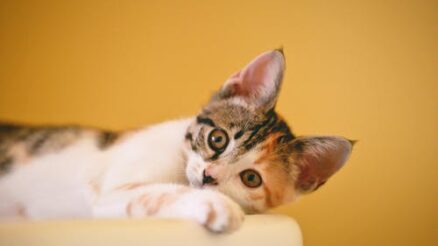Reptiles, birds, and small mammals are great companion animals that are also enjoyable. Each species has its own set of challenges. Avian animals need to be properly taken care of to avoid diseases. Avian husbandry demands a high level of hygiene.
Many facilities offer veterinary services like wellness exams, vaccinations, dental care, internal medicine, and exotic pet care like Pine Grove Animal Clinic.
What is the most successful way to keep the cage clean and tidy?
In a comparatively tiny living space, many pets engage in most of their day-to-day activities like eating, drinking, urinating, and playing.
Because of its restricted environment, birds often urinate in their food or water dishes, perches, and on other objects within their cages. If you do not clean the floor of your bird’s cage regularly, food and feces items may accumulate, spreading fungi and germs, including mold. Ensure that your beloved family members have a clean home to display to their feathered pals.
1. Use hot water and soap.
Clean your bird’s cage components using hot water and detergent and thoroughly rinse using clean water for more effective disease control. They recommend using disinfectants such as Avisafe or F10 to combat common fungal and bacterial infections.
Bleach (1:32 diluting bleach and water) is a solution to combat resistant bacterial or viral diseases. If you choose to use cleaning products for your bird’s cage, you have to review the label and speak with your avian veterinarian should you have any questions.
2. Check the feeding bowl and water dishes daily.
Clean up and empty the water, and feed dishes every day. After thoroughly washing with water, air dry it. Water and food containers should be kept in separate sets. Steel plates made of stainless steel are cleaner than plastic dishes or bottles, which are difficult to clear.
Round dishes are preferable over rectangular or square containers since bacteria can grow within food dishes and water dish corners. To avoid food from falling onto the floor of the cage, ensure that you only feed your pet the amount it consumes throughout the day. Food that is not eaten spoils quickly and may serve as a breeding ground for microorganisms that can be detrimental to the health of your bird.
If your pet has internal health problems, you can consult with a specialist here to have your pet examined for internal conditions.
3. Ensure that the bird perches are clean.
Make sure your bird’s perches are tidy. Make use of the hot tap, soap, or disinfectant, along with the help of a scrubbing brush or scourer to get rid of feces and organic matter from nests. We would not want to live in a place where our wastes were always in the ground. There’s no reason that our beloved pets should not be the same.
Natural perches are more appealing than dowels, plastic, or rope perches since they are easy to replace each week. Fresh branches can also offer your pet bird the chance to enrich its environment regularly.
You can contact your local avian and exotic animal clinic for any concerns about your pet.
4. Ensure that the cage floors are clean.
It is essential to thoroughly clean the floors of your cage at a minimum once per day, as this is the place where food waste, feces, water, and other disgusting objects gather. The most cost-effective and efficient flooring material is newspaper. The ink in most newspapers is soy-based. It is safe and non-toxic for your pet to chew.
Remove the bottom tray every week. Ensure that you clean the whole cage and the contents thoroughly. Owners should examine perches and plates, toys, and other cage items in the event of wear and corrosion. Replace any toys and perches with frayed ropes and rusts as soon as possible.
Conclusion
There are three types of hygiene protocols for birds: cleanliness in the air, food safety, ambient cleanliness, and “personal” bird hygiene (grooming). To ensure the good health of our birds demands continuous use of proper practices for hygiene.

